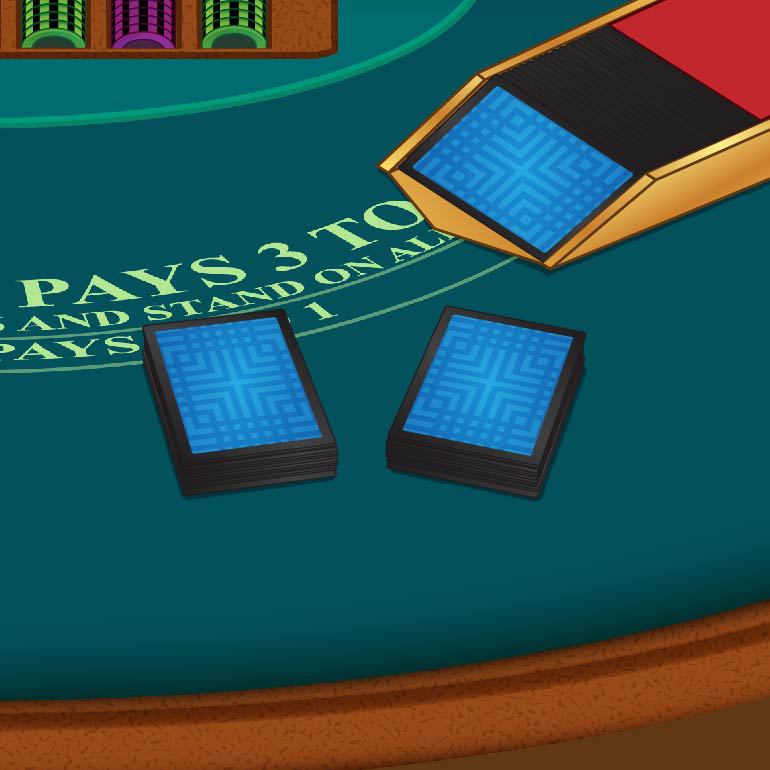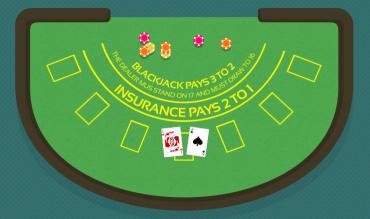Spend enough time hanging around advantage players and you hear stories that are fabulous and unforgettable. You might have James Grosjean telling you about the time he discovered hole-carding, or John Chang recounting how he got over on casino security by dressing as a woman, or Kelly “Baccarat Machine” Sun explaining the mechanics of her first million-dollar win.
Unfortunately, most of us don’t have that kind of access. Colin Jones, founder of the Blackjack Apprenticeship educational site, does. He knows everyone. And Jones got them to tell their best stories in a new book he edited: Tales From the Felt.
Kings and queens of the game – including Richard Munchkin, Tommy Hyland, Max Rubin and Joanna Henderson – recount blackjack experiences that are harrowing and heroic (from Henderson putting her husband in mortal danger to Tommy Hyland showing a New Jersey congressman what it’s like to get backed off in Atlantic City).
As Jones himself puts it in the introduction, “The stories are too good to not be told. Every time I hear a great story from a friend, I want every AP to hear it.”
Now, thanks to his collection of true recollections, written by the top-ranked APs, we all get to hear them.
Card Counting & Lessons Learned
One of the most touching tales comes from by Brynen T.D. House, the son of a late gambling addict. At the chapter’s start, he was on his way to the same fate as his deceased father – burning through his savings by gambling recklessly without an edge. Then, after a particularly devastating run, he heard about card counting. House began studying, learned to do it, corralled a $3,000 bankroll – and blew it all by over-betting his bankroll and running into bad luck.
Reloaded with $200 from the casino ATM machine, he returned to the table. House kept his betting units in check, watched the count go through the roof and won $7,800 in a single shoe. Over the course of three days, House found himself ahead by $21,000. Then the inevitable happened: He got backed off.
But that didn’t stop House. There are loads of casinos in the United States. He hit a bunch of them. Within two-and-a-half years of traveling to gambling dens across the country, House managed to recoup half of what his father lost over his lifetime. At this point, he’s surely closer to collecting it all.
“Card counting has saved me from becoming a degenerate gambling addict,” House wrote in the book. “It has allowed me to think in terms of risk and EV (expected value), both during sessions and in everyday life. Sometimes I wish my father was still here and we could finally bond … I think crushing casinos together would have been the perfect opportunity.”

Staying the Course
Richard Munchkin is one of the sharpest APs in the game – and also one of the most successful. But it did not start out that way. And, had he listened to his more sensible self, he would never be the winning gambler that he is today. Decades ago, when Munchkin was in his early 20s, he card counted for minuscule stakes, worked as a dealer to make ends meet and was lucky enough to meet Alan Woods.
Woods went on to become one of the most successful horse bettors in the world, taking hundreds of millions of dollars out of Hong Kong race tracks alone. Back then, though, Woods merely ranked among the world’s winningest blackjack players.
Munchkin lucked out when a trusting Woods offered to give him and his card-counting pals a $20,000 bank with the idea that they’d play until they doubled the investment and would then split the profits with Woods.
However, the likelihood of reaching that double-up point appeared less than likely. After two months, Munchkin had put in 167 hours of play and was down $15,000. At that point, Woods let the guys know that he was heading home to Australia and would need to break the bank. An embarrassed Munchkin, who knew he was playing correctly but running poorly, apologized for the lackluster result. Woods told him not to worry and assured that “the math would eventually work itself out.”
Munchkin was less certain. In fact, he gave up on card counting altogether and returned to dealing fulltime, figuring it would never work itself out. Then, one of his guys who wound up joining Woods’ team, convinced Munchkin to give it a final shot. Grudgingly, he did.
This second time, the mathematics of card counting functioned as they should. Then, flush with confidence and cash, Munchkin, as he put it in his chapter, “quit the dealing job and never looked back.”

Full Contact Blackjack
Though I’ve yet to achieve the dizzying heights of Richard Munchkin, I have a bit of AP in me as well. For a couple of years I played on a pretty big card counting team and experienced the reactions of unknowing gamblers when I made plays that were correct from a counter’s perspective but appeared incredibly boneheaded to the uninitiated.
I’ve doubled down in seemingly wrong situations (say, with 11 against an ace) and hit 12 against 16, both times because the count dictated that I do so.
But, fortunately, I never had to do such things with a menacing civilian at the table. An AP who goes by the name of “SD1” was not so lucky. In fact, in his chapter, he recounted playing at Red Rock Casino in Las Vegas and being on the same table as former boxer and UFC president Dana White.
A big, strong, intimidating guy, White has a reputation for throwing around his weight. He was betting $25,000 per hand and allowed SD1 to play alongside him.
But then, with SD1 having two $1,500 bets up while White wagered more than 10 times that amount, the dealer showed a 5. He dealt SD1 a pair of queens on one of the hands. Any basic strategy player would be thanking the lord and staying pat. But, with the true count above six, SD1 knew he was supposed to split.
Getting his nerve up, he did precisely that – and received a pair of 10-value cards. Miffed, White stuck with a couple of stiffs.
Then the dealer rolled his hole card to reveal a 6. He had the dreaded 11, which could have been a sure road to 21. Of course he hit – and dealt himself a 3. White glared at SD1 as all concerned parties waited to see what would happen next. The dealer unspooled a 10 and busted.
Not sure what to say about all this – and the fact that SD1 splitting queens prevented the dealer from hitting 21 – White simply remarked, “Holy shit.”
Hopefully this will be a lesson learned for uninformed players who see card counters doing seemingly weird – but statistically correct things – and accuse them of, say, altering the rhythm of the cards. Considering that such thinking is pure nonsense, they might do well to acknowledge that sometimes things simply work out for the best and everybody wins.


